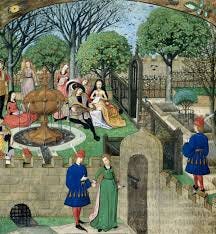Joseph Campbell writes,“We have people who consider themselves believers because they accept metaphors as facts, and we have others who classify themselves as atheists because they think religious metaphors are lies.”
For Campbell, religious stories are neither facts nor lies, but metaphors. Yet metaphors aren’t so innocent that they let us off the hook.…
Keep reading with a 7-day free trial
Subscribe to What Is Called Thinking? to keep reading this post and get 7 days of free access to the full post archives.



